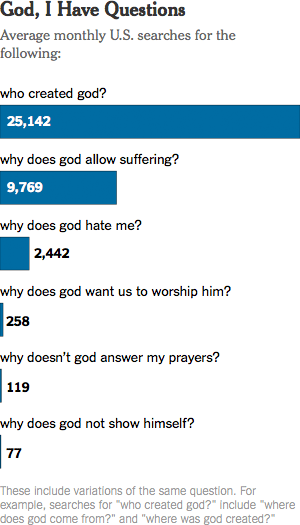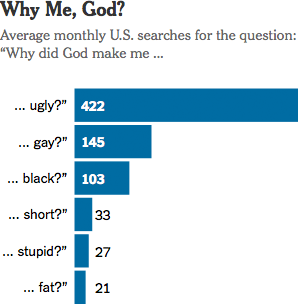God are you there? I googled you.
- By Alison Lesley --
- 24 Sep 2015 --

A New York Times writer analyzes Google search trends related to religion and God.
Seth Stephens-Davidowitz from the New York Times is busy trying to understand the Google search trends related to religion and God.
Some analysis of the Google trends suggests that people are hesitant in sharing any doubts or questions about religion and God with their family, friends, imams and pastors. Alternatively, they find it simpler to Google all their queries related to this sensitive subject.
Studies reveal that each year in America, several thousand debatable questions are raised about the concept of God and what the Bible says. Some of the most pressing questions are about the creator of God and why suffering prevails in the presence of God (if there is one).

Even then, it would be wrong to draw very definite conclusions about God and religion, based on Google search trends. In fact, irrespective of whether the search trends have prevailed for decades, it does not point towards actual developments. Besides, the group of individuals who make the searches keeps changing over a period of time.
However, web data analysts hold that there is an obvious drifting away from the concept of religion and God. Data collected from polls consistently shows that there is a rise in the count of individuals who call themselves agnostics or atheists.

Among other popular questions relating to God which are searched on Google include:
Why am I not liked (hated) by God?
Why do we need to praise God so much?
God are you there? I googled you.[/tweetthis]
There is a possibility to establish a connection between religious questions and the geography or location of the individual seeking the answers. Is it true that places that have greater suffering and unhappiness are more likely to have doubters or religion haters? Well, that is not true. Geographies which have extreme poverty and poor life expectancies might be more religious. They have a lot of questions about the subject in general.
An analysis of the search data in the U.S. reveals that people are more interested in knowing about heaven, rather than hell.


















